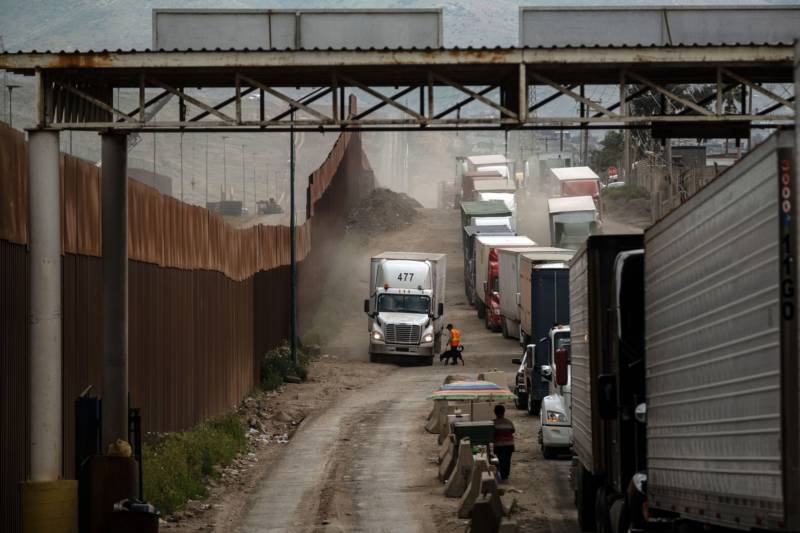Truck drivers moving cargo between Mexico and the United States are used to tedious waits to cross the border, with the agricultural products and industrial parts they carry sitting idle in their vehicles.
The time it takes for commercial vehicles and other travelers to cross into the U.S. has spiked in the past week — with wait times in some cases four times as long — after U.S. immigration authorities reassigned hundreds of officers to cope with a record number of Central American migrant families.
Fewer staffers screening cargo and passengers at airports and other ports of entry is leading to lane closures and reduced hours of operations. Those delays are costing millions of dollars to the U.S., experts say.
Citing an “unprecedented humanitarian and security crisis,” U.S. Customs and Border Protection officials have temporarily reassigned 51 CBP officers in California to help process, transport and care for migrants crossing the border without documents. The U.S. Border Patrol, part of the Customs and Border Protection agency, is responsible for policing the expanse of U.S. borders in between the official ports of entry.
Nationwide, CBP redeployed 545 officers to support Border Patrol, most of them in Texas, because agency officials say the influx of migrants is overwhelming them.

